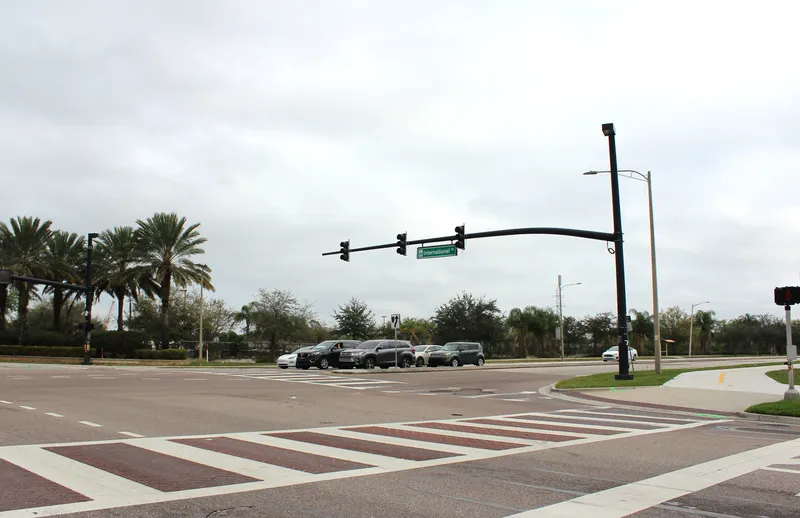McCain has announced results measuring the effectiveness of its adaptive signal control software deployed on the city of San Marcos's new 'smart corridor'. The study revealed the system significantly improved traffic flow on San Marcos Boulevard, the second busiest arterial in San Diego County, California.
May 16, 2012
Read time: 2 mins
McCain’s QuicTrac adaptive control system, aimed at reducing stop-and-go traffic by coordinating signal timing along the corridor, was surveyed for travel time reductions, associated costs and environmental benefits. The study focused on peak travel times both pre- and post-implementation of the signal control software. During peak travel periods the comparisons revealed that delay times were reduced between 19 and 46 per cent, depending on the time of day. This was significantly higher than anticipated. These reduced travel times provide a 7.8 per cent average reduction in fuel consumption, resulting in reduced harmful emissions.
“Previously, the city of San Marcos optimised this corridor to meet the growing demand of this busy arterial. The city expected successful results from the new software system, but no one anticipated these kinds of results,” said Jason Stack, principal of Stack Traffic Consulting. “Typically, we would see similar results on a corridor that has never been optimised, so gaining this level of improvement is outstanding for the city and residents.”
With an average of 22,000 to 46,000 vehicles traveling the San Marcos Boulevard corridor daily, a solution that would provide the maximum benefit to the public at a minimal cost to the city was sought. The McCain adaptive traffic control system surpassed expectations with a 29.7 per cent average decrease in eastbound delay times by distributing on-demand cycle lengths, alleviating stop-and-go traffic. In addition, the company’s solution delivered the city of San Marcos with an 8:1 benefit to cost ration on travel time.
“We are excited to have received results that truly demonstrate adaptive control software’s range of capabilities,” said Brian Wagner, ITS solutions manager for McCain. “Studies that yield these types of results will further establish adaptive technology as a premier solution in the traffic industry.”







